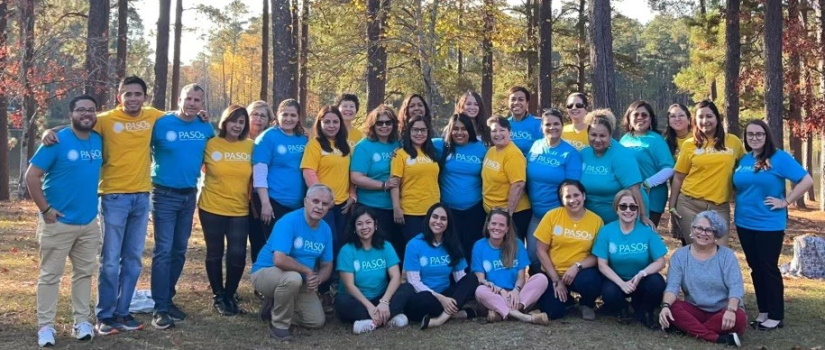April 3, 2023 | Erin Bluvas, bluvase@sc.edu
The Centers for Disease Control and Prevention has awarded a grant to the South Carolina Department of Health and Environmental Control’s (SC DHEC) Division of Tobacco Prevention and Control to address disparities in tobacco use among Latinx youth and adults in the state. PASOs, a part of the Arnold School’s Center for Community Health Alignment, and the Consortium for Latino Immigration Studies will use nearly $650K of the award to assess tobacco/vaping use among Latinx communities in S.C. and use this information to design culturally appropriate prevention programs.
“Despite years of data and messaging that tobacco use and secondhand smoke exposure pose serious health risks, the United States remains at an epidemic level for this particular public health concern,” says Maria Martin, executive director for PASOs. “These activities are leading causes of cardiovascular disease, developmental delays in children and cancers, and they continue to be the cause of more than 520,000 deaths each year.”
Approximately 14 percent of U.S. adults, 24 percent of high school students and seven percent of middle school students currently use tobacco products, according to the CDC. Records from SC DHEC indicate that South Carolinians face even higher prevalence rates, with 18 percent of adults and 52 percent of youth (grades 9-12) identifying as tobacco users.
Despite years of data and messaging that tobacco use and secondhand smoke exposure pose serious health risks, the United States remains at an epidemic level for this particular public health concern. These activities are leading causes of cardiovascular disease, developmental delays in children and cancers, and they continue to be the cause of more than 520,000 deaths each year.
Maria Martin
The American Lung Association reports disparate tobacco use rates among racial/ethnic groups, with American Indians (21.9 percent), African Americans (16.8 percent) and non-Hispanic whites (16.6 percent) experiencing the highest rates, and Hispanics (10.1 percent) and Asian Americans (seven percent) claiming lower rates. However, Hispanic smoking rates are second highest among these groups when looking at usage by race/ethnicity at the state level.
“This notable difference in Hispanic tobacco use prevalence rates suggests that the S.C. Hispanic population may be facing unique tobacco use related disparities,” says Martin. “Without current data to indicate what the specific disparities might be, we cannot take the appropriate steps to address this important public health issue.”
Martin’s multidisciplinary research team of social workers, public health professionals, community health workers and others will first assess the gaps and barriers that exacerbate and maintain high tobacco/vaping use rates in S.C. Latinx communities. They will then work with SC DHEC to develop an effective and culturally relevant prevention/cessation strategy.
“This project will provide greater insight into the factors associated with tobacco use and vaping in this population as well as the most appropriate ways to provide intervention efforts and educational messages,” Martin says. “In addition, we will conduct cultural competency training with SC DHEC staff and their partners to build their capacity to serve Latinx communities in S.C.”
Related:
PASOs Combats COVID-19 Racial and Ethnic Health Disparities in South Carolina
Center for Community Health Alignment wins Community Health Care Leadership Award
Center for Community Health Alignment awarded grant to enhance equity through cross-sector alignment
